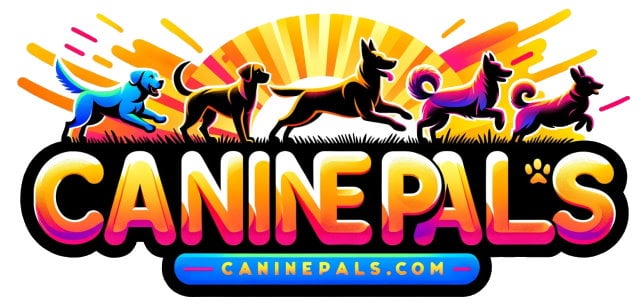Last Updated on March 20, 2024 by Denise Leo. Post first published on July 18, 2018.
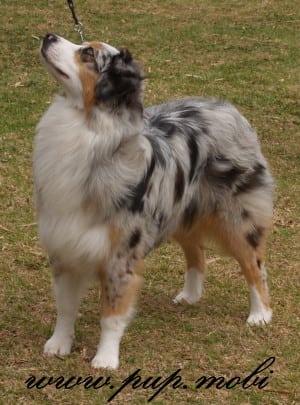 Dog Cancer Survival Guide
Dog Cancer Survival Guide
How to avoid cancer in dogs. Providing your dog with a healthy lifestyle will assist him to live a long, happy and healthy life free from cancer.
The number one cause of death in the canine world is cancer. Approx. one in every three dogs (33%) will contract cancer at some point in their lives. Sadly, this figure is the same in humans. There are many varied types of cancer cells in dogs and they mimic human cancer cells. The most common cancerous cells in dogs are the mast cell tumors.
As with humans, there’s a lot of research into canine cancer and, despite there not being a cure for all types right now, the best way to tackle cancer is through prevention. Typical causes of canine cancers include diet, exercise, genetics, environment, lifestyle and many other factors that aren’t as common (for example – being deprived of daylight) or the more controversial aspects (such as vaccines).
There are also certain indirect causes of cancer and these include separation anxiety disorder and various other mental health disorders. These are usually followed by poor appetite, an unhealthy amount of weight loss, and lethargy.
Why Dogs Get Cancer?
Genetics History and Pedigree
 Before making a puppy/dog buying decision, it’s essential that you carefully study the pedigrees of the litters on your short list. Although cancer won’t be obvious within the pedigree, you can talk to breeders or owners and ask relevant questions.
Before making a puppy/dog buying decision, it’s essential that you carefully study the pedigrees of the litters on your short list. Although cancer won’t be obvious within the pedigree, you can talk to breeders or owners and ask relevant questions.
People can contract cancer due to their genetic history, and this also applies to canines. While cancer is certainly the number one dog killer, specific breeds are more prone to the disease. Great Danes, Rottweilers, and Labrador Retrievers are much more likely than Beagles, Dachshunds and Border Collies.
Research shows that smaller dog breeds are less likely to develop cancer than larger breeds. Great Danes and St. Bernards have the greatest risk of contracting more serious types of cancer such as Osteosarcoma (bone cancer) which, sadly,
has a very poor prognosis.
Despite these comparisons and some dogs being more or less likely than others when it comes to developing cancer, no dog breed is 100% safe because cancer has such a complex, unpredictable nature. The reverse is also true. Just because your dog is a Great Dane or Saint Bernard, it doesn’t guarantee he’ll develop cancer of any type or, if he does, it may not kill him. If you’re really desperate to defy the odds, do your thorough research before making your purchase.
Don’t Over-Vaccinate
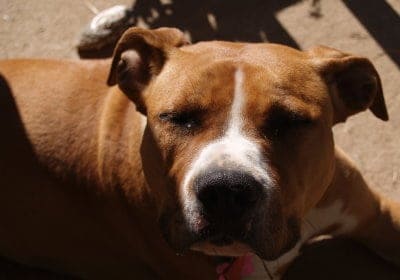 Research has revealed the fact that if dogs are over-vaccinated for viruses including Distemper (CPD), Canine Parvovirus (CPV) and Canine Adenovirus (CAV), it’s increasing their risk for contracting cancer. Lots of owners still keep vaccinating their dogs well into old age but is it essential to do so? It’s necessary to understand that vaccines are believed to immunize dogs for many years and even for the entire life of the dog in question.
Research has revealed the fact that if dogs are over-vaccinated for viruses including Distemper (CPD), Canine Parvovirus (CPV) and Canine Adenovirus (CAV), it’s increasing their risk for contracting cancer. Lots of owners still keep vaccinating their dogs well into old age but is it essential to do so? It’s necessary to understand that vaccines are believed to immunize dogs for many years and even for the entire life of the dog in question.
Currently there’s insufficient proof to know that vaccinations are vital to keep dogs healthy. Many doses come in a one size fits all, so the same dosage that a Chihuahua is given is also applied to a Great Dane. It’s ridiculous to expect both dogs to benefit the same due to their widely different sizes.
 Links have been discovered between cancers such as leukemia and lymphoma and dogs being over-vaccinated. There have also been correlations to other health problems such as anemia, allergies and seizures. Negative effects of having too many vaccinations aren’t always immediately obvious. It can take months or years or after a few vaccinations.
Links have been discovered between cancers such as leukemia and lymphoma and dogs being over-vaccinated. There have also been correlations to other health problems such as anemia, allergies and seizures. Negative effects of having too many vaccinations aren’t always immediately obvious. It can take months or years or after a few vaccinations.
Concerns are growing regarding how much education regarding vaccine side effects is being provided to vets. Because of this, you must assume as much responsibility as you can when it comes to learning everything that can possibly affect the health of your dog. After all, you have your dog 24/7, whereas the vet has to care for a lot of different dogs with a wide variety of problems.
This is similar in the human world when you see your GP. You should learn and know enough to ask questions to get the best treatment for yourself (and your dog).
Do your research into whether your dog needs vaccinations and boosters or not. Remember, his immune system isn’t a toy to be played with. If you’re too cautious, you could cause him more harm than good.
Neutering and Spaying.
 Neutering and spaying of dogs have positives and negatives when it comes to the prevention of cancer:
Neutering and spaying of dogs have positives and negatives when it comes to the prevention of cancer:
Female dogs:
• Spaying decreases the risk of mammary cancer a great deal, particularly if it’s done after the first heat.
• If it’s never done or if she’s spayed after her fifth heat, these scenarios provide the greatest chance of mammary cancer.
• If she’s spayed, uterine and ovarian cancers are eliminated because the ovaries and uterus are removed.
Male dogs:
 • If a male dog is neutered (testicles removed), testicular cancer isn’t possible.
• If a male dog is neutered (testicles removed), testicular cancer isn’t possible.
• It’s also a decreased chance of contracting prostate cancer (because there’s usually a connection to testosterone), although there needs to be more proof of this.
Even if dogs have been neutered or spayed to decrease or eliminate some forms of cancer, there are others to which a dog may be genetically disposed of. If your dog has been “fixed,” there’s an increased risk of lymphoma, mast cell tumors and hemangiosarcoma. When making decisions regarding what’s best for your dog’s overall health, avoid solely basing it on the cancer risk factor.
A Healthy Diet
 As it is in the world of human beings, there have been lots of claims, reports and articles about the best canine cancer diet. What foods to eat and avoid to prevent cancer. Because there’s no solid evidence, it’s difficult to know what’s true and what’s not. However, it can’t hurt to listen to food experts and add some of their ideas to your dog’s meals. If he ends up being healthier as a result, then that’s positive news.
As it is in the world of human beings, there have been lots of claims, reports and articles about the best canine cancer diet. What foods to eat and avoid to prevent cancer. Because there’s no solid evidence, it’s difficult to know what’s true and what’s not. However, it can’t hurt to listen to food experts and add some of their ideas to your dog’s meals. If he ends up being healthier as a result, then that’s positive news.
If you don’t want your dog to develop cancer, look at the foods you already give him. Processed foods, poor quality treats and unhealthy dog supplements may all have a negative effect on your dog’s metabolic processes, making it easier to contract cancer. These types of foods also link to overweight and obese dogs, making his risk of contracting cancer increase exponentially.
Dog Cancer Diet
This is a list of some of the best foods that can help prevent cancer in dogs (and are best consumed in small amounts):
• Blueberries – have ellagic acid that blocks the metabolic paths that can lead to causing cancer
• Pumpkin – has lots of beta-carotene and that decreases the growth of cancer and eliminates other substances that can cause cancer.
• Apples – are described as being an antiangiogenic food that can stop existing blood cells from creating new ones. Once a tumor begins growing, it needs the new blood vessels or it will be oxygen-starved and unable to get nutrients so it can’t survive.
• Turmeric – has curcumin, an antioxidant that hinders the growth of tumors.
• Coconut oil – has fatty acids that’s great for the health of your dog’s skin and can kill pre-cancerous lesions and protect against some cancer-causing bacteria.
If your budget can handle it, feed your beloved pet a diet of homemade food (cooked or raw) instead of canned or dry food. Nutrition is much more bioavailable and the nutritional profile is much higher. However, homemade dog food is generally more inconvenient and expensive to maintain.
Increase Exercise
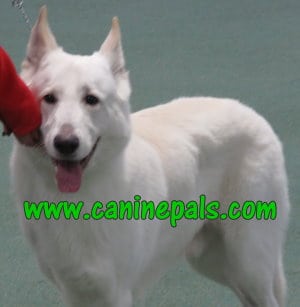 A dog obviously can’t live a sedentary lifestyle. While certain breeds require more exercise than others, it’s still vital that your dog has at least 30-60 minutes of exercise every day.
A dog obviously can’t live a sedentary lifestyle. While certain breeds require more exercise than others, it’s still vital that your dog has at least 30-60 minutes of exercise every day.
Exercise will assist your pet in keeping his weight in a healthy range instead of becoming obese and increasing his risk of cancer (as is the case in people). It also helps his metabolism keep on working properly, maintaining proper functionality of vital organs, etc. This includes his heart rate, brain functions and breathing ability.
Other benefits your dog gets as a result of exercising include: more efficient elimination of body toxins, a strong immune system and lower levels of stress, etc.
In simple terms, the life quality of your dog is far higher if he gets regular exercise, and he’ll be less vulnerable to health problems of all types.
Taking your dog for regular walks has other benefits: it strengthens the bond between you, enabling you to read his body signs if his health isn’t in tip top shape. You also get good health as a result of walking all the time. To avoid you both getting bored of the same routine, vary where you walk and what you do. Hiking, walking along the beach, swimming (if he likes it), and newer locations all play a part in making exercise fun for both of you. Change the intensity and run, walk, jog, etc., will make it more enjoyable.
Avoid The Majority Of Supplements.
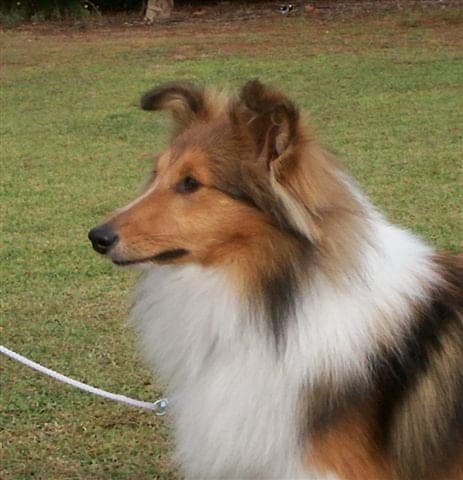 Supplements can help give your dog all the essential nutrients he needs, as part of a well-planned, healthy diet. However, the supplements must be the correct ones. There are chews and treats that say they contain minerals and vitamins but are high in carbs, usually the simple, unhealthy type, to reduce the price and make it worse as an addition to your dog’s diet. Sadly, these unhealthy products are used by tumor cells that become full of cancer as they thrive. You wind up feeding the cancer instead of your dog.
Supplements can help give your dog all the essential nutrients he needs, as part of a well-planned, healthy diet. However, the supplements must be the correct ones. There are chews and treats that say they contain minerals and vitamins but are high in carbs, usually the simple, unhealthy type, to reduce the price and make it worse as an addition to your dog’s diet. Sadly, these unhealthy products are used by tumor cells that become full of cancer as they thrive. You wind up feeding the cancer instead of your dog.
Supplements of a high quality (e.g. fish oils) aren’t a magical cure for cancer and they can’t guarantee your dog won’t develop cancer. However, they do help make your pet healthy overall, so it’s not all bad news.
Buy natural snacks that are full of protein and one-ingredient treats as well. Always read the ingredients list on all dog food products before you make any purchases. Food for dogs and people say one thing on the front of the container but generally have a lot of bad addititions in the ingredients list (often in microscopic writing).
A diet high in protein will ensure your pet will maintain good muscles, repair and grow as healthy and strong as possible. If he develops cancer, he’s in the best position to defeat it. Studies have concluded that feeding him omega-3 fatty acids (from fish oils) strengthen his immune system and can hinder the growth of cancerous tumors.
Environment.
 Because most people lead very chaotic lifestyles, it can be simple to overlook certain parts of your dog’s routine. E.g. you might walk him along a concrete footpath beside a busy, polluted road instead of walking to a dog park because it’s easier to do.
Because most people lead very chaotic lifestyles, it can be simple to overlook certain parts of your dog’s routine. E.g. you might walk him along a concrete footpath beside a busy, polluted road instead of walking to a dog park because it’s easier to do.
It’s far from being the healthiest choice to make for your pet. He may be inhaling all the car emissions from cars zooming by. It’s impossible to know how he’s affected by this and it’s troubling.
Pesticides are dangerous to dogs if used in your garden or anywhere on the path you walk your dog. Dogs inhaling pesticides has been identified as an increase in cases of lymphoma in dogs. Don’t take your beloved pet anywhere he may be exposed to exhaust emissions or pesticides. Instead, visit parks and green spaces that aren’t farms and avoid heavy traffic roads.
There are also harmful things inside. For example, if you’re a smoker or use cleaning products that are harmful for your dog. Your dog can’t speak English to remind you these are bad habits that cause him harm so you need to think like a dog. If you do or use something that can pollute your pet’s lungs, STOP DOING IT!!
Daylight.
 You would hate it if you were forced to remain inside every day so never assume that your pet thinks differently. Dogs were created by Mother Nature and they absolutely love running, sniffing, foraging and exploring everywhere they can visit.
You would hate it if you were forced to remain inside every day so never assume that your pet thinks differently. Dogs were created by Mother Nature and they absolutely love running, sniffing, foraging and exploring everywhere they can visit.
When you adopt or purchase a puppy or dog, you take full responsibility for his life, including what he eats, how regularly he gets to go outside, and the state of his health. Never be complacent!
Although daylight hasn’t actually been shown to stop cancer directly, it does help, and also contributes to your beloved pet’s overall state of health. Unfiltered, natural daylight provides your dog with lots of health benefits. For example, it gets the crucial metabolic pathways going, of which some are hormonal.
Daylight triggers your pet’s circadian rhythm, which has responsibility for many things including:
• Regeneration of cells.
• Production of hormones.
• Brainwave activity patterns.
• Important biological processes.
To maximize benefits, your dog should have exposure to changing sunlight. For example: take him out in the early morning, around lunchtime and at sunset. If you can’t do all three because of work or other commitments, he should be taken outside at least once so he doesn’t experience being alone in complete blackness while it’s daytime. If he’s home alone, keep blinds and curtains open. If your schedule is too rigid, perhaps pay somebody to take your pet for walks during daylight hours.
Daylight is an element that will affect your dog’s moods. He’ll feel calmer and relaxed if he can spend lots of time outside; maybe you have seen how happy he is when he’s interacting with nature. The sun is very powerful, even when it’s Winter. Allow your dog to be a dog!
Stress, Depression, and Frustration.
 To the uninitiated, it may seem ridiculous but how your dog feels emotionally may be directly linked to the level of risk of cancer. A dog’s immune system can be weakened if he’s suffering from emotional stress, making him more likely to develop diseases such as cancer.
To the uninitiated, it may seem ridiculous but how your dog feels emotionally may be directly linked to the level of risk of cancer. A dog’s immune system can be weakened if he’s suffering from emotional stress, making him more likely to develop diseases such as cancer.
Dogs are sentient, intelligent animals intensely sensitive to of any negativity within their immediate area. Some say dogs have enough intelligence that they can empathize with the emotions of people. This is the reason why you need to be careful of what you say to your family and your pets. Avoid exposing your pet to intense negative emotions and if you’re yelling at somebody else, think of him as you may be stressing him out.
Your dog can become depressed and/or frustrated if you don’t walk him enough.
Dogs don’t watch TV or read books but they can get bored. Physiologically, dogs
Were made to spend time outside, enjoying nature. Yes, they do enjoy snuggling up with you each evening, they need to be stimulated by playing and walking and the benefits associated with sunlight (as mentioned previously).
It would be ridiculous to purchase a dog and believe his life commences when you arrive home from work. If you’re concerned about him being on his own for the whole day, think about hiring someone to play and/or walk him during the day time.
Decrease Your Use Of Tick and Flea Products.
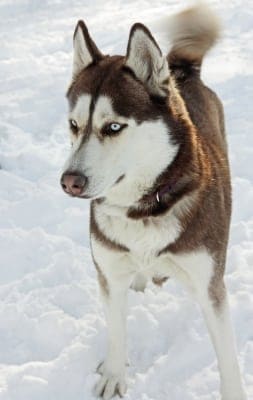 Many dog tick and flea products allegedly contain carcinogenic insecticides various
Many dog tick and flea products allegedly contain carcinogenic insecticides various
carcinogenic insecticides such as tetrachlorvinphos. These are believed to cause cancer. Many typical tick and flea collars also contain these toxic substances in harmful amounts and can be fatal if absorbed by the dog’s skin or ingested orally.
Most modern flea products now have higher margins of safety since this discovery. They’ll use natural insecticides (e.g. deltamethrin) that are much safer for people and canines. Homeopathic flea and tick collars rely on all natural ingredients, including peppermint and lemongrass, instead of toxic chemicals. Always choose the safest product when buying anything for your dog.
When you deal with products that have the potential to enter your pet’s digestive tract or bloodstream, always take every precaution. Read labels properly and, if unsure about anything, Google them or talk to an expert.
The same applies with products for cats. Ensure nothing you use for your cat can hurt your dog in any way. Each animal is physiologically different so what might be perfectly safe for your cat but it’s possibly lethal for your dog, and vice versa.
Providing your dog with a healthy lifestyle will assist him live a long, happy and healthy life free from cancer.
Copyright Caninepals.Com. All Rights Reserved.
